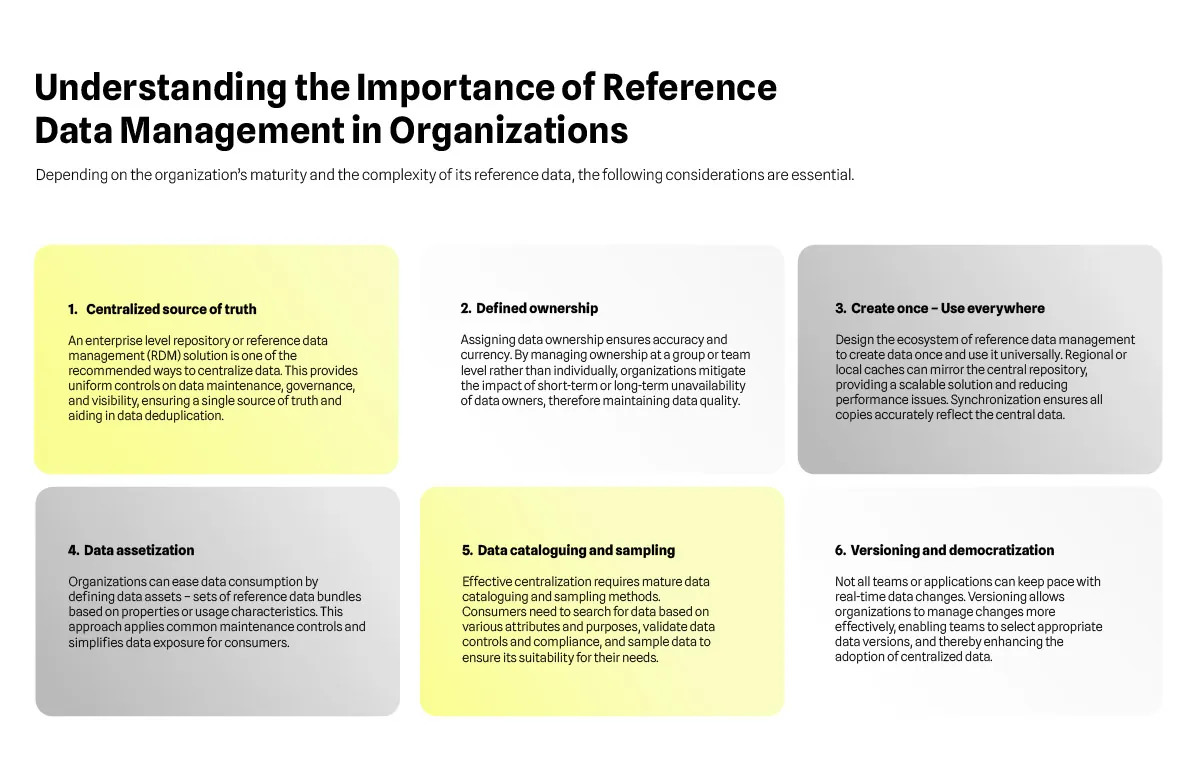 United Arab Emirates EN
United Arab Emirates EN United Arab Emirates EN
United Arab Emirates ENShainil Shah
Director of Business Consulting , APAC
Data
An organization that tries to operate without an organized approach to managing reference data would have a tough, inefficient path to their operations and would run into risks of compliance and inaccuracy. This data, which classifies and categorizes information across various business functions, is essential for everything from internal platforms and customer-facing applications to daily calculations and data analytics. Without it, chaos ensues.
From simple country and gender codes to complex enterprise-generated classifications, maintaining the accuracy and currency of reference data is a challenge every organization faces. Financial institutions, in particular, grapple with this due to the vast amount of reference data they manage.
To overcome this, the organizations employ different strategies for reference data management. A reference data management solution helps to maintain, govern and distribute reference data for operational needs of the organization.
The difference between both approaches lies where the reference data is stored. When it is centralized, organizations will typically employ advanced solutions to hold the reference data for individual applications to consume. Sometimes, these applications also act as intermediaries, refining data for downstream consumption.
In a decentralized approach, each application, or group of applications within a business function, manages its own reference data – which they maintain and utilize according to their specific needs.
There is no exact “one size fits all” approach to reference data, but a holistic approach that balances various organizational needs can be highly effective.
Depending on the organization’s maturity and the complexity of its reference data, the following considerations are essential:
An enterprise level repository or reference data management (RDM) solution is one of the recommended ways to centralize data. This provides uniform controls on data maintenance, governance, and visibility, ensuring a single source of truth and aiding in data deduplication.

Implementing a robust reference data management strategy is essential for organizations striving for data accuracy and efficiency. Adopting a centralized source of truth, defined data ownership, and efficient data utilization practices, are key factors to ensure reference data remains accurate, current, and accessible, driving better decision-making and operational success. It also lays the foundation for further control on data storage and distribution strategies that are in line with the compliance demands of various countries and their specific Data Regulations.
Synechron’s Global Digital Practice – We pride ourselves on creating user experiences that people love by exceeding expectations. Our core capabilities include, but are not limited to: